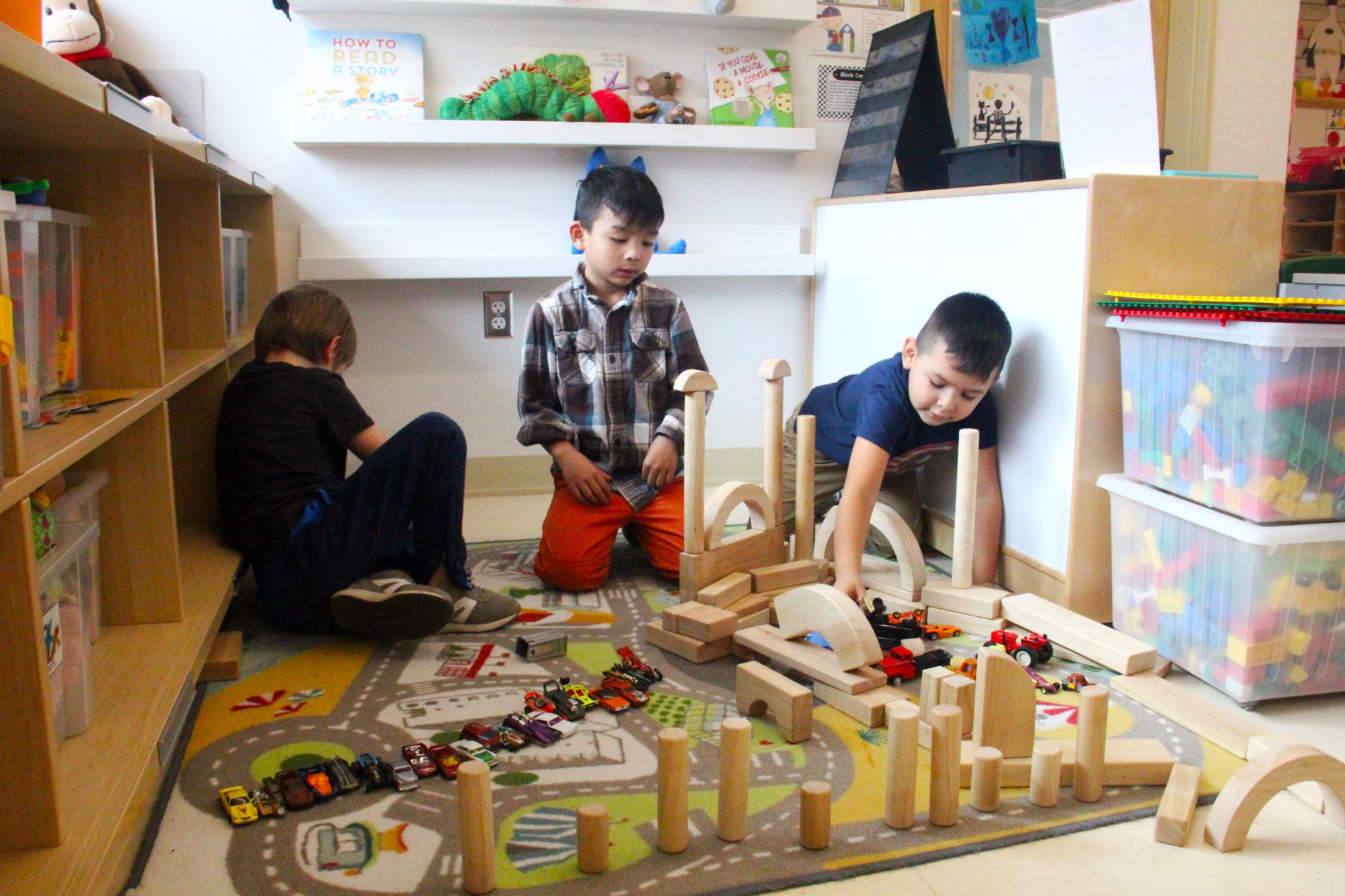
Editor's note: Please see our Math Early On resources and the accompanying newsletter story on Kelley Buchheister's grant.
by Jackie Mader
February 8, 2020 | The Hechinger Report
EVERETT, Wash. — On a sunny winter morning in Sara Stevens’ kindergarten classroom at Pathfinder Kindergarten Center, 5- and 6-year olds spread out across the classroom learning about colors, shapes, engineering and design.
Not a pencil or worksheet was in sight, however. These kids were playing.
Standing in front of a child-sized kitchen in the corner of the classroom, Jamila dropped a plastic tomato, a hot dog, a banana and a fish into a small metal pot.
“The cake’s ready!” she proclaimed to her friends.
A few feet away, her classmate, Ivan, was sprawled on the ground surrounded by blocks and small toy cars.
“This is a house with an invisible force field,” he proclaimed, carefully adding a block to the structure. “I didn’t build the force field,” he clarified. “I imagined it.”
Originally intended to ease overcrowding in local schools, the Pathfinder Kindergarten Center, located about 25 miles north of Seattle in the Mukilteo School District, is a haven for its 545 kindergarteners. The $26-million school opened in 2017 with a central goal: to make kindergarten here more playful and joyful. Classrooms mirror high-quality preschools, with artwork papering the walls, children playing gleefully on colorful carpets, and classroom shelves stocked with bins of toys. Heated floors invite the children to play and rest on the ground and multiple play areas both inside and outside the school offer kids opportunities to learn and burn off energy.
It may seem frivolous to spend so much money on a school dedicated to a grade level that students aren’t even required to attend in most states, but research shows kindergarten can be one of the most important years in a child’s educational career. Positive experiences in kindergarten can improve non-cognitive skills and early test scores, and even increase the likelihood that children will attend college and ultimately make more money as adults.
At last count, 14 states and the District of Columbia required districts to offer full-day kindergarten, up from 10 states in 2008. As kindergarten has become more widely available in the last several decades, it’s also become more academic. In some districts, full-day kindergarten schedules are packed with back-to-back academic activities and lessons.
Read More:
https://hechingerreport.org/play-based-kindergarten-makes-a-comeback/